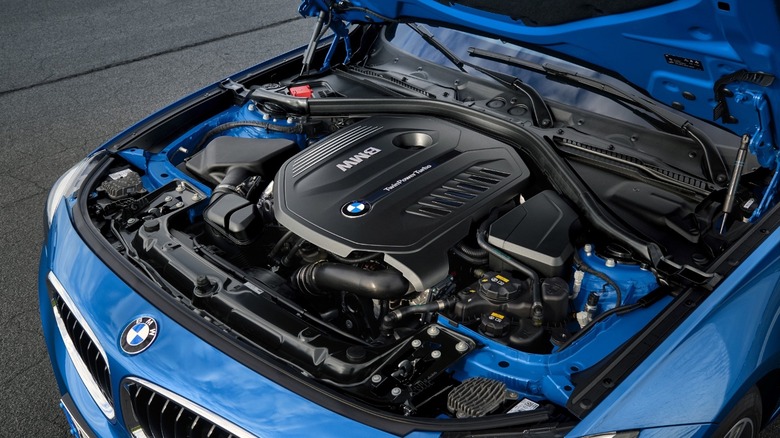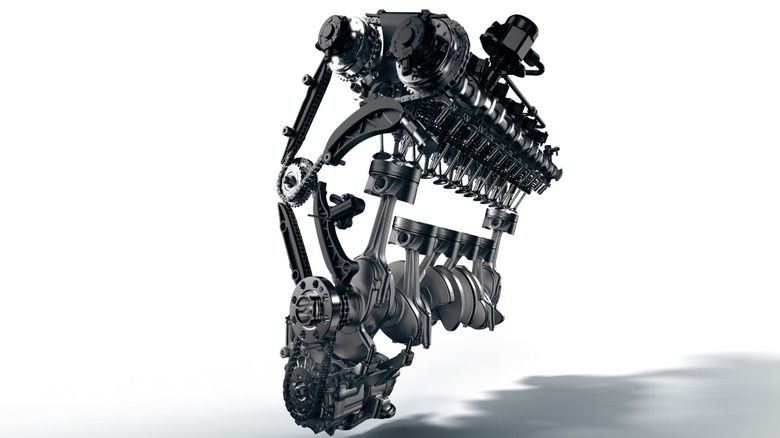Which Cars Have A BMW B58 Engine Under The Hood?
BMW has a bit of a hit-or-miss reputation when it comes to engines. While the company has created some incredibly reliable BMW models, it's also been responsible for some wallet-draining duds. BMW has been producing turbocharged engines since the 1970s, but the brand truly began taking production turbocharged engines seriously in the mid-2000s. Initial attempts with engines like the N54 and N63 hurt BMW's reputation of reliability for years after their release, but BMW has ironed out most of the major issues with those earlier engines.
These days, BMW creates some of the most reliable turbocharged engines on the planet, with the B58 representing the best the company has to offer. The 3.0-liter turbocharged inline-six was introduced as a crown jewel of BMW's modular engine family in 2015 – a blank-sheet engine series that BMW designed to be as versatile, reliable, efficient, and powerful as possible. Taking advantage of BMW's TwinPower turbo technology — in addition to other performance and efficiency-focused features like double-VANOS variable valve timing, Valvetronic variable valve lift, and high-pressure direct injection— the B58 was the most celebrated and advanced inline-six engine BMW had ever created in 2015.
Versatility truly is the B58's strongest characteristic. It powers performance models, including high-trim F-chassis cars like the 340i and M240i. However, it can also be found under the hoods of some of BMW's largest and heaviest vehicles, like the X3, X4, X5, 7-Series, and even the enormous X7 land yacht. That doesn't even include non-BMW vehicles like the latest generation Toyota Supra, which also features a B58 powerplant.
The B58 has continued to evolve with time
BMW has never been very straightforward when it comes to its engine naming scheme. Like many other BMW engines, the B58 has a number of different versions that correspond to various tuning differences and upgrades. In 2018, BMW introduced a massive update to the B58, changing major features like the cylinder head design, fueling system, cooling system, and timing chain. In the BMW community, this newer iteration is called the B58 technical update, or B58TU for short. The update also split the B58 engine series into 'middle output' and 'high output' versions, with middle output B58s producing 335 horsepower and the high output versions producing 382 horsepower.
After the B58's first technical update, non-performance models received the middle output variant of the B58 while performance models received the high output variant. For example, models ending with the 40i designation built between 2018 and 2023, including the G05 X5 xDrive40i, G07 X7 xDrive40i, and the G30 and G31 540i (among others), used the 335 horsepower B58. Between 2018 and 2024, performance models marked with an 'M' preceding their model number, such as the G20 and G21 M340i and G01 X3 M40i, used the 382 horsepower high output variant.
BMW released another technical update for the B58 engine — known as the B58TU2 — in 2023. The major differences include upgrades to the VANOS variable valve timing system and the integration of a new hybrid system, bumping power output to 375 horsepower.

